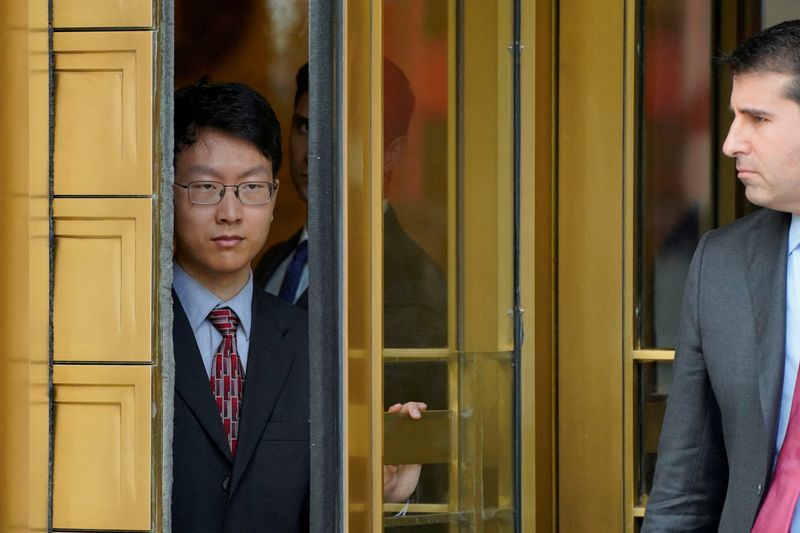Bankman-Fried lieutenant builds fraud detection tool for prosecutors

By Luc Cohen
NEW YORK (Reuters) – The former FTX executive who wrote computer code that enabled his imprisoned former boss Sam Bankman-Fried to steal billions of dollars from cryptocurrency customers has built software to help the U.S. government uncover fraud in the stock market.
Federal prosecutors made the disclosure in a Wednesday court filing seeking leniency for Gary Wang, FTX’s former chief technology officer, at his scheduled Nov. 20 sentencing before U.S. District Judge Lewis Kaplan in Manhattan.
Wang is also building a tool to help spot crime on cryptocurrency exchanges, according to the filing.
“The tool has sufficient potential value to the government,” the U.S. Attorney’s office in Manhattan said. “Wang’s willingness to use his skills proactively, to help detect other criminal activity in financial markets, distinguishes his cooperation.”
Bankman-Fried, 32, is serving a 25-year prison sentence imposed by Kaplan after a jury last year found him guilty of stealing $8 billion from customers to prop up his hedge fund Alameda Research. He is appealing his conviction and sentence.
Wang, in his early 30s, will be the last member of Bankman-Fried’s former inner circle to be sentenced by Kaplan following FTX’s November 2022 collapse.
Bankman-Fried’s former girlfriend and Alameda chief executive Caroline Ellison was sentenced to two years behind bars in September. Nishad Singh, another FTX computer programmer who pleaded guilty, was spared prison time last month.
At Bankman-Fried’s trial, Wang testified that his former boss instructed him to adjust FTX’s software code to give Alameda special privileges, enabling the fund to secretly withdraw billions of dollars from the exchange.
Last week, Wang’s lawyer Ilan Graff implored Kaplan to spare his client prison time because of his assistance to prosecutors.
Many details about Wang’s software tools were redacted from the court filing because disclosing them would undermine their effectiveness, prosecutors wrote.
(Reporting by Luc Cohen in New York; Editing by Daniel Wallis)